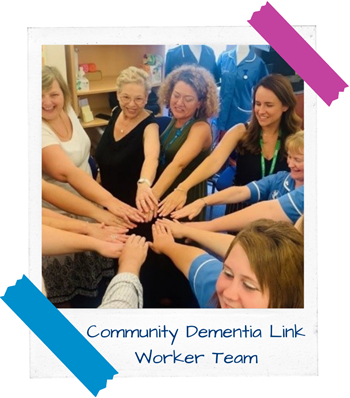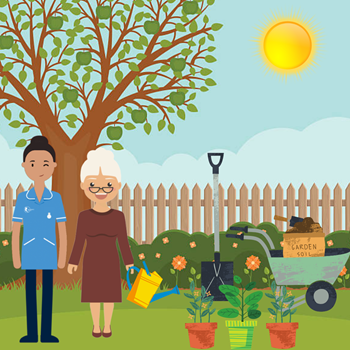Dementia care in Gloucester from Bluebird Care
a guide to choosing Dementia Care in Gloucester
Dementia Care in Gloucester
Most homecare providers these days claim to offer advanced dementia care, but it’s important to be aware that not all are actually a dementia specialist. Not all care for those living with the symptoms of dementia is the same so when you’re seeking out outstanding care it’s important to ask questions of any possible care provider to determine precisely what makes their care service a good choice for your family member.
Our advanced dementia team in Gloucester have been working on our dementia service since 2010. We’ve been supplying advanced care for people living with dementia from Tuffley and Quedgeley to Twigworth and Churchdown, and from Hucclecote and Brockworth to Longford and Maisemore during all that time, while following to our company philosophy of making constant improvements. This has allowed us to observe and develop a knowledge of the vital factors that we believe add up to making an excellent support service for people living with dementia that can meet the needs of everyone involved.
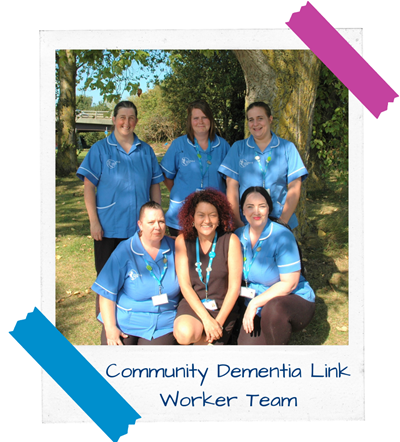
The Many Components of Excellent Dementia Care
Home Care is the Best Care
There has been much said and written about “Relocation Stress Syndrome” or “Transfer Trauma” where somebody moving into hospital or residential care experienced a marked increase in their symptoms of dementia. This isn’t usually attributable to a poor level of care at the patient’s new location; rather it’s down to the change of environment. It’s important to bear in mind the extent to which the environment that we are in gives us cues for actions and thoughts that make up much of our personalities.
For example, we may wake up, open up the blinds and notice that the flower beds require attention or that the lawn needs cutting. As we know they’re ours, we go into the shed, get the tools, and begin the day by taking exercise and doing meaningful activities.
Perhaps when we go downstairs, we plump the cushions on an old chair, and the smell reminds us of when a friend or relative sits there. This prompts us to tell a story about that person, or to want to call them and chat.
Imagine how many of these cues we experience each day in our familiar environment, and how many trains of thought and action are inspired by them. If you combine this knowledge with the fact that a person living with dementia may find it hard to create new bonds or understand new situations, it is easy to understand why so many people struggle terribly with relocation. While the stress of relocation may well subside with time, the cues for conversation and activity may not ever be replaced.
Our person-centred, one-to-one service supports someone living with dementia to continue respond to the memories and cues provided by their own home and community to continue living a happy and meaningfu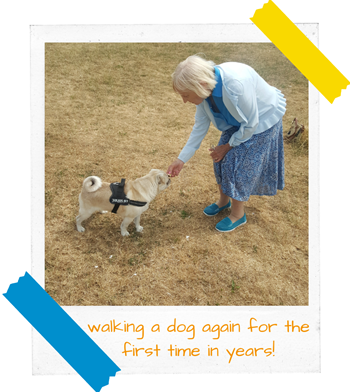 l life.
l life.
Our Person-Centred Approach to Care
In a nutshell, person-centred care revolves around finding out which things are most important in the life of someone we support, and ensuring that the care they receive empowers them to continue to enjoy those things to the maximum extent they can. Such an approach can produce amazing improvements in the quality of life experienced by someone living with a form of dementia such as Alzheimer’s Disease or Dementia with Lewy Bodies.
Quite often, once someone has a negative experience while trying to do one of the activities they enjoy, they may well simply write the activity off as something they can no longer do. Alternatively, the person trying to assist them may witness the difficulty and decide to protect the person from stress by not repeating the activity. Over time, more and more activities may be seen as “too difficult” and a person living with dementia may have less and less to look forward to in life.
Right from the beginning, our dementia care is focused on finding the things that our customers enjoy doing now, or used to enjoy in the past but have found too challenging to continue with unassisted. Our Care Assistants at Bluebird Care are encouraged to develop their relationships with their customers, and through daily conversations, asking questions and listening to stories and anecdotes, they learn more about the person whom they are working with, and can begin to help create activities which bring joy and an increased quality of life.

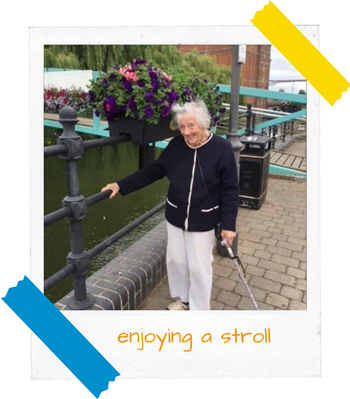
Working with Strengths
We use a Strengths-Based model of care, which encourages somebody who has dementia to retain the maximum amount possible of their decision-making control and physical capability. By using the skills and strengths accumulated throughout a lifetime, a person can experience greater engagement, more self-worth and more enjoyment in life so as part of our team’s advanced dementia training our care assistants learn to encourage customers to carry on using those strengths and skills by offering support with all of the aspects of the activity that they struggle with, without de-skilling them and taking over.
Strengths-based care utilises the strengths of the individual we are supporting, along with the strengths and resources available to them through their family, friends and local community. This way of working enables people to remain connected to their community, and to continue to feel engaged with and valued by those around them.
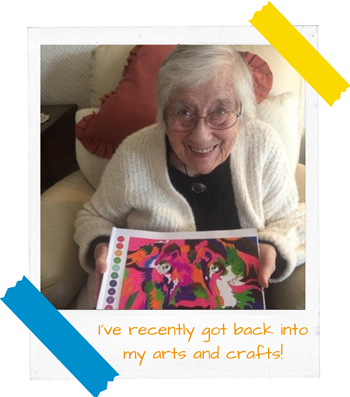

Investment in Relationships
Although forming strong bonds with carers is always important, for someone who lives with dementia this can be absolutely vital. Building a bond of trust, and gaining depth of knowledge of the individual we’re supporting is vital to the strengths-based and person-centred way of working, and in order to help with this, it’s important that carer numbers are kept to the minimum level to provide Continuity of Care.
We have found that the best solution is to work in small teams, with members who have a well-rounded skillset between them. This means our customer’s care will always be delivered by someone who knows them, and who they can trust.
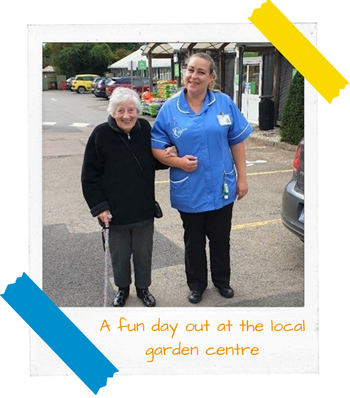
Reliability and Routine
Establishing and maintaining healthy routines can bring great benefit to overall wellbeing, both for people living with dementia and those who live around them.
Setting up and maintaining a healthy routine brings benefits in overall well-being, not only for those who live with dementia but also for those living around them. By getting up at about the same time each day before enjoying a day of meaningful engagement encourages a better night-time sleep routine. Having a structure in place of the table being laid at mealtimes can inspire individuals to eat healthy foods rather than snacking. Of course, it would be counter-productive and unkind to impose structure of this sort on somebody who has never lived in this way, however, for most people, a routine of this kind would be normal and may alleviate many of the challenging issues surrounding dietary requirements and sleep cycles.
Uncertainty about when the next carer will be visiting can be a source of distress, so we do everything possible to prevent the situation arising. Our customers always know who is coming and when. We will agree a target call time with you at the start of care delivery, and because we support people with needs which may vary day-by-day, we promise to always schedule your call to within 30 minutes of that time, and to send you a roster with the times you can expect us. If there is going to be a variation of more than ten minutes from the visit times which we have sent out to you, we will call to let you know.

Training, Knowledge and a Culture of Learning
All types of dementia present themselves in different ways, so understanding the symptoms associated with somebody’s dementia can assist greatly when supporting them. It’s essential that training is kept up-to-date, is retained, and is implemented in practice on a daily basis in ways that are sympathetic and which respect the individuality of the individual being supported.
We’re very aware that education systems that are purely based on e-learning are ineffective so we have developed a complete development and training model that involves guided learning in placements, group discussions and the chance to teach other people so that learning can become an integrated element of everyday practice.
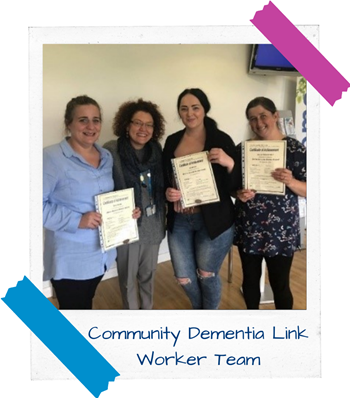
For the past 12 years, we’ve created an entire career pathway that allows our valued care staff teams to hone their skills and develop their knowledge. Each management team member has undergone advanced training, and has the necessary skills to ensure that our customers all achieve the highest possible quality of life. Every carer that visits our customers has already started their journey in dementia training, with every team having its own qualified and assigned Dementia Lead with the necessary resources and skills to lead a whole team in achieving outstanding results.
Our Gloucester team have a huge wealth of experience which we have shared with other care organisations and unpaid family carers to help improve the standard of dementia care across the whole county. If you have a diagnosis of dementia, or are supporting someone who does, and would like to know more about how we could work together with you, one of our dementia care team will be very happy to speak to you.
Click here to get in touch by email, or here to view our other contact options.